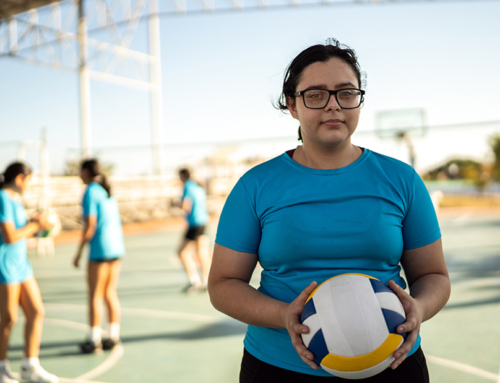We all fall into the clutches of the parent trap. Many times, you have to put your differences, opinions, and emotions aside.
It is difficult, I know.
Your opinions and emotions make you react and that is the wrong road to take. As a parent, it is necessary to learn how to adapt and change your behavior.
Here are ten ways that can help you learn how to be a better sports parent.
Be Mindful
Do not give in to your own emotions and blurt out your opinions. Be present, positive, and act in a mature, non-opinionated, and responsible way. When mistakes or errors are made, do not be negative.
Learn to encourage and not criticize.
If you can’t say something nice, positive or encouraging, then say nothing at all. Stay quiet. Mindfulness is being present without reacting.
Winning Or Losing Is Not Important
Either outcome is not why your child plays. Maybe it is, but the bottom line is they play because it is fun or they love it.
Many times, socialization and friendships are what your child wants from playing sports and on a team.
Focus On Your Child’s Enjoyment
Sports are supposed to be a friendly, social experience. The minute you put pressure on your child, it’s not fun anymore. Let them have fun and enjoy your child’s happiness.
If you want your child to be the best player, don’t be pushy or your child will want to quit. Think about how it feels when you are pushed or stressed. Now, think about your child and the way they feel when applying pressure and stress to them.
So, sit back and enjoy!
Let The Coach Do Their Job
Players play, coaches coach, officials officiate, and parents watch. Know your position, and your position is a spectator sitting in the stands.
If you coach your child from the sidelines, they will get confused. The coach is telling them one thing and you are telling them another.
Also, your child may stop listening to the coach if that’s the case. Never undermine the coach’s cues and criticism as well as their plays and strategy. Just watch, support, and encourage the athletes.
Volunteer To Help The Team
Get to know the parents of the players and the coach. And, when at the games, you can socialize with other parents to share your opinions and emotions that you otherwise should not tell the coach.
Be A Good Sport
Of course, you want to support your child and their team. But, you also have to give credit where credit is due. Children learn by watching you. They learn by observing you talking to the coach and other people.
Your child understands behavior more than you think. Therefore, cheer for other children on the team, not just your child. Give encouraging positive words to all players on the team. Don’t speak badly or insult the other team. Remember, they are children too!
Learn to applaud the other team’s good plays and efforts. And, let your child know it is important to shake hands after the game with no frustration or anger.
Don’t Compare Or Critique Your Child
The more you practice patience, the more you will develop it. Understand this for yourself and your child.
The more your child practices, the more they will evolve. However, all children have different styles and abilities of learning. So, there is no need to compare them to other children or yourself.
Instead of telling your child they should have done this or did that on the field, let your child know the coach will practice improving their skills and performance.
Treat Your Child The Same After A Win Or A Loss
Remember, your child is a child, not a professional. But even professionals are not hard on each other.
Treating your child differently after a loss is a good way for them to lose interest in their sport. It is stressful for them and makes them feel unloved, even though you love them. It will discourage them, and, anytime you treat them indifferently in life, it will affect their reaction and decision unfavorably.
Show your child that your love for them is not based on a game, a win, or a loss.
Don’t Make Excuses For Your Child
Everyone has good days and bad days. And on those bad days, there is no need to make excuses for your child’s poor performance.
Playing sports is about responsibility and accountability. Everyone makes mistakes. Just learn how to minimize the mistakes. Know this though, mistakes will happen no matter how few you or your children make.
Being a sports parent can be challenging. Just be understanding about everything from practices to game days. Avoid being overly critical of your child, the coach, the team, the referee, and the other competitors. Be positive and encouraging.
What’s important is that in the end, everyone walks away with a smile on their face. And, that stopping for that ice cream cone after the games is a sign of family tradition filled with happiness and love, not something determined by your child’s performance in the game.
Original article posted on stack.com
Read More:



